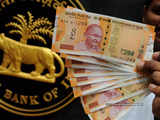Suggest a new Definition
Proposed definitions will be considered for inclusion in the Economictimes.com
Budget
- PREV DEFINITION
- NEXT DEFINITIONGross Budgetary SupportThe government’s support to the Central plan is called Gross Budgetary Support.Read More
What is 'Fiscal Deficit'
Definition: The difference between total revenue and total expenditure of the government is termed as fiscal deficit. It is an indication of the total borrowings needed by the government. While calculating the total revenue, borrowings are not included.
Description: The gross fiscal deficit (GFD) is the excess of total expenditure including loans net of recovery over revenue receipts (including external grants) and non-debt capital receipts. The net fiscal deficit is the gross fiscal deficit less net lending of the Central government.
Generally fiscal deficit takes place either due to revenue deficit or a major hike in capital expenditure. Capital expenditure is incurred to create long-term assets such as factories, buildings and other development.
A deficit is usually financed through borrowing from either the central bank of the country or raising money from capital markets by issuing different instruments like treasury bills and bonds.
Also See: Primary Deficit
Description: The gross fiscal deficit (GFD) is the excess of total expenditure including loans net of recovery over revenue receipts (including external grants) and non-debt capital receipts. The net fiscal deficit is the gross fiscal deficit less net lending of the Central government.
Generally fiscal deficit takes place either due to revenue deficit or a major hike in capital expenditure. Capital expenditure is incurred to create long-term assets such as factories, buildings and other development.
A deficit is usually financed through borrowing from either the central bank of the country or raising money from capital markets by issuing different instruments like treasury bills and bonds.
Also See: Primary Deficit
- PREV DEFINITION
- NEXT DEFINITIONGross Budgetary SupportThe government’s support to the Central plan is called Gross Budgetary Support.Read More
Related News
 Centre's fiscal deficit up to August rises to almost 36% of FY24 targetIn absolute terms, the fiscal deficit touched Rs 6.43 lakh crore between April and August, compared with Rs 5.42 lakh crore a year earlier. Until July, the Centre’s fiscal deficit had touched 33.9% of the annual target, sharply higher than 20.5% a year earlier.
Centre's fiscal deficit up to August rises to almost 36% of FY24 targetIn absolute terms, the fiscal deficit touched Rs 6.43 lakh crore between April and August, compared with Rs 5.42 lakh crore a year earlier. Until July, the Centre’s fiscal deficit had touched 33.9% of the annual target, sharply higher than 20.5% a year earlier. India's fiscal deficit for April-August at Rs 6.43 lakh crore, widens to 36% of FY24 aimIndia's fiscal deficit for the first five months of the current fiscal year, ending in August, reached 6.43 lakh crore rupees, equivalent to 36% of the annual estimates, according to government data. This represents an increase from the 32.6% deficit reported during the same period the previous year.
India's fiscal deficit for April-August at Rs 6.43 lakh crore, widens to 36% of FY24 aimIndia's fiscal deficit for the first five months of the current fiscal year, ending in August, reached 6.43 lakh crore rupees, equivalent to 36% of the annual estimates, according to government data. This represents an increase from the 32.6% deficit reported during the same period the previous year. As India gets closer to its GDP goal, experts warn of subdued nominal growthEconomists predict that India's nominal GDP growth may fall below the budgeted estimate of 10.5% for the current fiscal year, challenging the country's goal of becoming a $5 trillion economy by another year. The subdued wholesale inflation, which affects nominal GDP growth, is expected to remain low, with experts estimating it to average around 1-2% in FY24.
As India gets closer to its GDP goal, experts warn of subdued nominal growthEconomists predict that India's nominal GDP growth may fall below the budgeted estimate of 10.5% for the current fiscal year, challenging the country's goal of becoming a $5 trillion economy by another year. The subdued wholesale inflation, which affects nominal GDP growth, is expected to remain low, with experts estimating it to average around 1-2% in FY24. Advance tax collections rise 20%; Rs 3.54 lakh crore in kitty till September 15Advance tax collections in the first half of the fiscal year 2023-24 have increased by 20% compared to the previous year, reaching ₹3.54 lakh crore. These collections are expected to further increase as more information is received from banks. Robust advance tax numbers indicate a strong economy and healthy corporate performance. The government is likely to release official data next week.
Advance tax collections rise 20%; Rs 3.54 lakh crore in kitty till September 15Advance tax collections in the first half of the fiscal year 2023-24 have increased by 20% compared to the previous year, reaching ₹3.54 lakh crore. These collections are expected to further increase as more information is received from banks. Robust advance tax numbers indicate a strong economy and healthy corporate performance. The government is likely to release official data next week. India may cut market borrowing if small savings shoot upIndia's market borrowing for the fiscal year could be lower than expected if small savings exceed projections, according to Economic Affairs Secretary Ajay Seth. The government had projected gross market borrowing of Rs 15.43 lakh crore ($185.88 billion) for the current fiscal year, but if small savings are higher than anticipated, it could reduce the need for borrowing
India may cut market borrowing if small savings shoot upIndia's market borrowing for the fiscal year could be lower than expected if small savings exceed projections, according to Economic Affairs Secretary Ajay Seth. The government had projected gross market borrowing of Rs 15.43 lakh crore ($185.88 billion) for the current fiscal year, but if small savings are higher than anticipated, it could reduce the need for borrowing Centre's fiscal deficit up to July widens to almost 34% of FY24 targetThe deficit, in absolute terms, almost hit Rs 6.06 lakh crore between April and July, against Rs 3.41 lakh crore a year earlier, as the government seems to have frontloaded not just capital but also revenue expenditure. The front-loading of tax devolution to states, too, played its part in pushing up the Centre’s deficit so far.
Centre's fiscal deficit up to July widens to almost 34% of FY24 targetThe deficit, in absolute terms, almost hit Rs 6.06 lakh crore between April and July, against Rs 3.41 lakh crore a year earlier, as the government seems to have frontloaded not just capital but also revenue expenditure. The front-loading of tax devolution to states, too, played its part in pushing up the Centre’s deficit so far. India's April-July fiscal deficit at Rs 6.06 lakh crore, widens on-year to 33.9% of FY24 aimIndia's fiscal deficit for the first four months widened from the same period a year earlier. Going ahead, while the government's decision to cut LPG cylinder prices is expected to have a limited fiscal impact, the calls to reduce petrol and diesel prices could affect the deficit. However, a surplus transfer of Rs 87,416 crore from the Reserve Bank of India has provided some cushion and also lifted India's non-tax revenues. India aims to narrow the fiscal gap to 5.9% of gross domestic product from 6.4% in the last financial year.
India's April-July fiscal deficit at Rs 6.06 lakh crore, widens on-year to 33.9% of FY24 aimIndia's fiscal deficit for the first four months widened from the same period a year earlier. Going ahead, while the government's decision to cut LPG cylinder prices is expected to have a limited fiscal impact, the calls to reduce petrol and diesel prices could affect the deficit. However, a surplus transfer of Rs 87,416 crore from the Reserve Bank of India has provided some cushion and also lifted India's non-tax revenues. India aims to narrow the fiscal gap to 5.9% of gross domestic product from 6.4% in the last financial year. 16th Finance Commission expected to be set up by end of November, says Finance Secy SomanathanThe 16th Finance Commission, a constitutional body that makes suggestions on Centre-state financial relations, is expected to be constituted by the Indian government by the end of November. The commission is responsible for recommending the ratio in which tax is to be divided between the Centre and states for five years starting April 1, 2026.
16th Finance Commission expected to be set up by end of November, says Finance Secy SomanathanThe 16th Finance Commission, a constitutional body that makes suggestions on Centre-state financial relations, is expected to be constituted by the Indian government by the end of November. The commission is responsible for recommending the ratio in which tax is to be divided between the Centre and states for five years starting April 1, 2026. China slowdown won't have much impact on India, says Finance Secretary TV SomanathanIndia's finance secretary, T.V. Somanathan, has said that the slowing Chinese economy is unlikely to have much of an impact on India's economy, and the government will continue with its capital expenditure push. The Chinese economy is suffering after retail sales, industrial output and investment data came in much lower than expected. Five major brokerages have now cut China's growth forecast for this year.
China slowdown won't have much impact on India, says Finance Secretary TV SomanathanIndia's finance secretary, T.V. Somanathan, has said that the slowing Chinese economy is unlikely to have much of an impact on India's economy, and the government will continue with its capital expenditure push. The Chinese economy is suffering after retail sales, industrial output and investment data came in much lower than expected. Five major brokerages have now cut China's growth forecast for this year. China slowdown won't have much impact on India, says Finance Secretary TV SomanathanIndia's finance secretary, T.V. Somanathan, has said that the slowing Chinese economy is unlikely to have much of an impact on India's economy, and the government will continue with its capital expenditure push. The Chinese economy is suffering after retail sales, industrial output and investment data came in much lower than expected. Five major brokerages have now cut China's growth forecast for this year.
China slowdown won't have much impact on India, says Finance Secretary TV SomanathanIndia's finance secretary, T.V. Somanathan, has said that the slowing Chinese economy is unlikely to have much of an impact on India's economy, and the government will continue with its capital expenditure push. The Chinese economy is suffering after retail sales, industrial output and investment data came in much lower than expected. Five major brokerages have now cut China's growth forecast for this year.
Load More